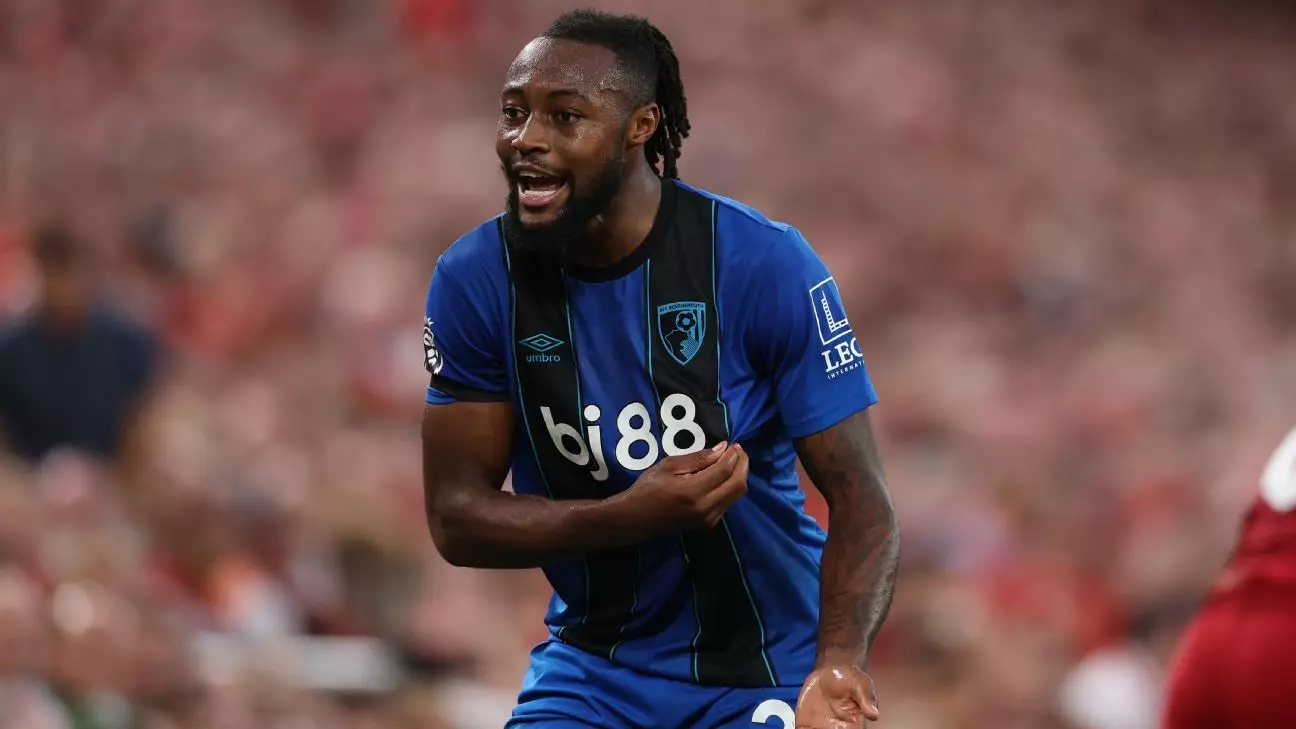Football, often hailed as the beautiful game, is intended to unify, inspire, and bring joy across continents and cultures. However, the undercurrent of racial abuse still mars its integrity, revealing deep-rooted societal issues that transcend sport. Recently, the incident at Anfield, where Antoine Semenyo was subjected to racist slurs, epitomizes the ongoing struggle. Despite efforts to combat discrimination, racist gestures and language persist within stadiums and cyberspace alike, serving as stark reminders that the fight is far from over. This incident highlights that, while progress has been made through campaigns and awareness, it is insufficient in eradicating prejudice entirely. It’s a harsh reality that demands not only condemnation but urgent, tangible action.
The Power of Collective Response and Compassion
What truly distinguishes the recent events is the unwavering solidarity demonstrated by players, officials, and fans. Semenyo’s testament about the support he received underscores the strength inherent in genuine football community spirit. When adversity strikes, the response from teammates, opponents, and supporters can either reinforce toxic divisions or build bridges of understanding. The collective reaction at Anfield leaned heavily toward the latter, showcasing that the sport can serve as a platform for positive change and unity. The swift removal and questioning of the suspect, as well as the professional handling by authorities, exemplify responsible conduct and underline that any racist acts are not tolerated within the football family. Such unity, when amplified, sends a powerful message to society: hate has no place here or anywhere else.
Reimagining Education and Cultural Change
Liverpool captain Virgil van Dijk’s remarks resonate deeply; he emphasizes that combating racism extends beyond condemning individual incidents. Education emerges as the most potent tool in shaping attitudes and dismantling prejudice. Van Dijk advocates for a proactive approach—empowering future generations through ongoing awareness campaigns, school programs, and community engagement. It is not enough to rely solely on symbolic gestures like taking the knee—the real change stems from changing mindsets at their roots. This entails tough conversations, persistent messaging, and the integration of anti-racism education into everyday life, including football clubs’ youth initiatives. The goal is to foster empathy and understanding so ingrained that racist behavior becomes socially unacceptable as much as it is morally wrong.
Football as a Catalyst for Social Progress
The sport’s global reach positions it uniquely to influence societal norms. When high-profile incidents occur, such as the racist abuse aimed at Semenyo, they become catalysts for larger conversations about equality and human rights. Clubs, leagues, and institutions hold a moral responsibility to leverage their platform. Their actions—public condemnations, stringent punishments, and inclusive campaigns—can shift cultural paradigms. The emotional resilience demonstrated by Semenyo, scoring twice and highlighting the power of sport to speak a universal language, illustrates why football must remain a battleground for justice. Yet, the existing campaigns, despite noble intentions, need structural reinforcement; policies must be more effective, education more pervasive, and accountability more transparent.
The Challenges and Opportunities Ahead
Tackling racism within football is complex, as it reflects broader societal issues. The persistence of racial abuse, despite widespread awareness and dedicated campaigns, reveals limitations in current strategies. These incidents test not only the integrity of the sport but also the strength of collective resolve. Moving forward, football organizations must embrace bold, innovative approaches—such as integrating diversity training into all levels, using technology for reporting abuse, and fostering inclusive fan culture. Meanwhile, societal institutions must continue addressing racism at its core, extending beyond the stadium walls. The opportunity lies in transforming moments of adversity into milestones for progress, inspiring other sectors to follow suit. Football’s role in shaping moral character and social values carries immense potential, provided it commits wholeheartedly to genuine change rather than surface-level gestures.

